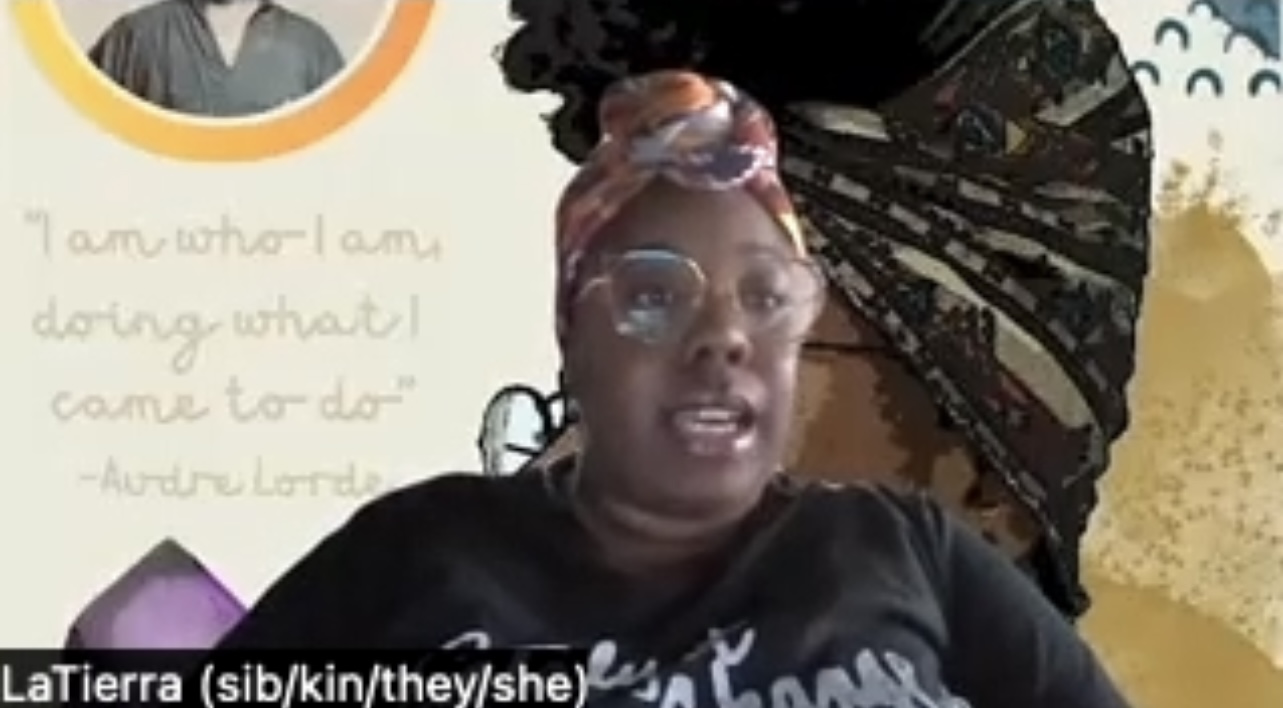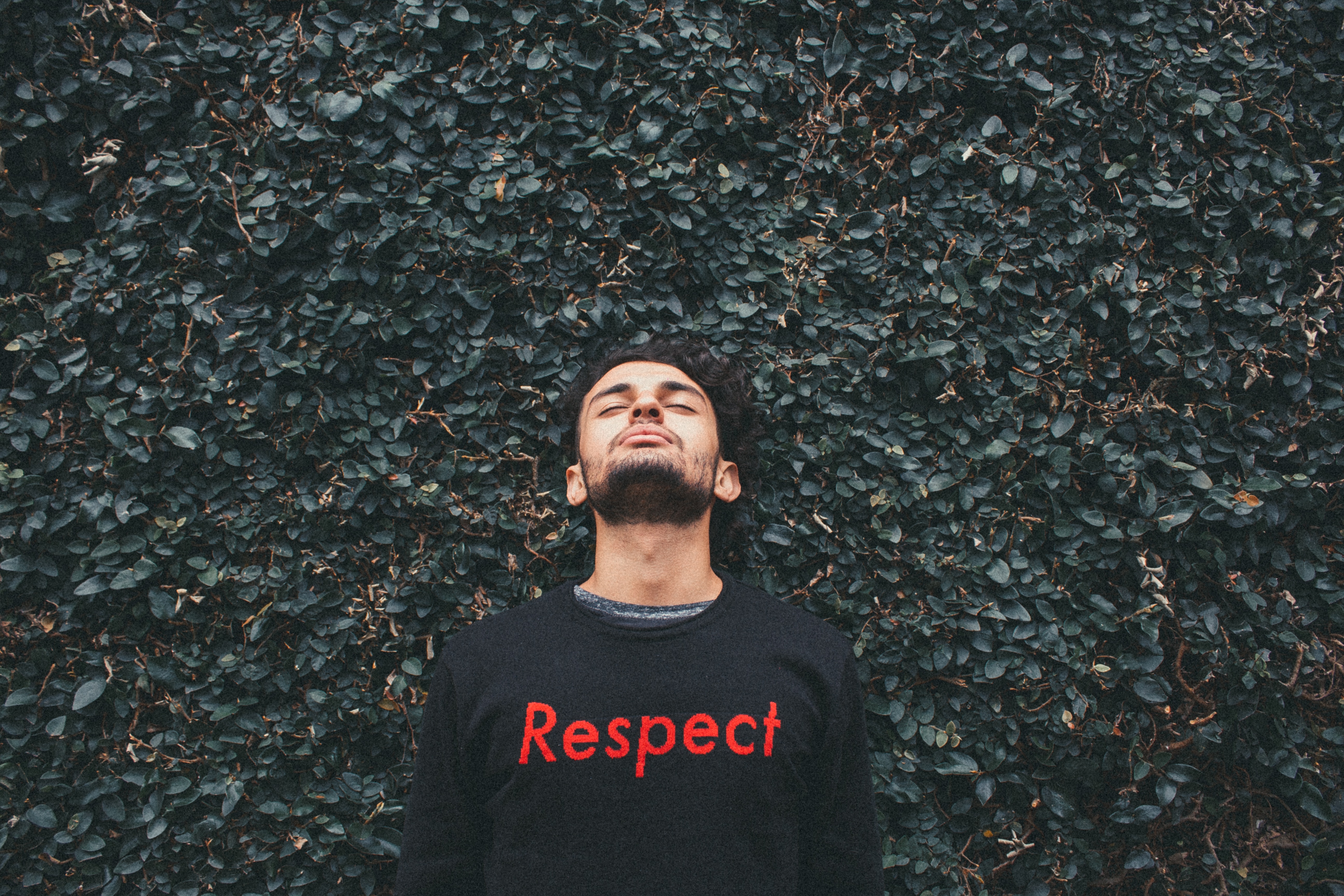Getting Needs Met

August 2023
Chat Bench - July Conversation with LaTierra Piphus
Last month’s conversation with LaTierra Piphus on the Chat Bench was nothing short of empowering! As a trailblazing leader of two timebanks — the Reciprocity TimeBank in Philadelphia, PA, and the NOLA QTBIPOC Exchange in New Orleans, LA — LaTierra is catalyzing change on multiple fronts.
Some of the highlights are:
- What brought her to timebanking
- Figuring out how to meet each other's needs
- Not having to rely on the systems to get our needs met
- Exchanging time credits as a useful compensation
- The idea of transferring time!
For those who missed it and want to mine LaTierra’s wisdom, we’ve captured excerpts from her dialogue with Chris Gray to share with you.
Read on below!
LaTierra Piphus: The organization that I started doing timebanking with is the Womanist Working Collective. We are a grassroots social action and support collective for black women and femmes, black trans women, black girls, black non-binary people. And our focus is on community organizing, mutual aid and holistic wellness.
In the beginning of the development of that organization back in 2015, we were having a hard time getting and keeping members engaged. And we also had a lot of members that had high need. They had a lot of needs in their life. We were just trying to figure out ways to meet those needs in a collective way.
I went to a training and I met someone who told me about timebanking, and just kind of told me how they do it. They were based in California and they had a very active timebanking project going on. She explained to me how it works. When I got back home, I did a little research, and then I was like, yeah, this is exactly what we need, to get members involved, to support members with childcare. To even attend events - to support with helping to cook food at events that we were having in the community. That was the beginning of us figuring out how to meet each other's needs.
As I dove deeper into learning that process, I learned how much of a social and solidarity economy project it was and how it could actually help lead us to shifting oppressive systems that we're living in and the interlocking systems of oppression that we are all fighting in. So we've been very intentional about centering that in our timebanking work. We call it radical timebanking because the intent is to shift our condition.
Chris Gray: That is so time credits. As you know, when you do something for somebody else, you don't say, well, you know, my service was very valuable, so I think you should give me five time credits. We share one-on-one-on-one based on time, and I wondered was that easy or hard for you to bring into being with members of your community.
LaTierra: I would say it was not difficult. Because the group that I mentioned, we were already established and we were already kind of primed for those kinds of relationships, mutual aid, grassroots efforts, not having to rely on the systems, to get our needs met.
So it wasn't difficult for that particular group that I was working with. However, when I started doing more community-based timebank orientations, trying to get more folks in Philly acclimated to the idea of starting this project on our own, their own neighborhoods or with their own community groups, that question started to come up a lot, because people were just so hard wired to believe that capitalism is the way, and the only way. And, they just don't share the same values initially. So it takes some work to essentially decolonize themselves to be open to the idea of the skill exchange happening, and exchanging the time credits as a useful compensation... something that is valuable that they could actually do something with. So, yeah, I would say it's been a struggle moreso with outside folks.
Chris: Did you find in doing that work of bringing people into it, that there were some certain special things that you learned how to say or do, or certain ways to bring people into this understanding... or did you have to sort of find the right thing to say for every individual?
LaTierra: Using the language around time poverty versus time wealth was helpful because people are more understanding of that... like they know that they don't have enough time to do A, B and C or they don't have enough time to do this in the house or that in the community. And they know that that's causing a strain on their lives, their relationships, things happening in the home.
It causes a strain. And they know that if they had more time, that things would flow smoother, and they would have perhaps more resources at their disposal. And so, I found that that was a helpful way to frame it for some folks, for example, we share this vignette in some of our workshops around this.
This person called Kiana Marcus, who is a single mother, is working two jobs, has two children, and is living with her mom in a two bedroom home now. It's a struggle for her to get all the way to work on public transportation that cuts into her time. Working all of these hours so she doesn't have time to spend with her children is a struggle.
Having to rely on her mom, who is primarily home bound, but supports in childcare when she's able. But that still leaves not a lot of room for Kiana to spend with her children or to even find jobs that might be able to pay her more so she has to work less. And just issues around commuting, issues around not enough resources.
A lot of those things can be resolved in community. If she were to join the TimeBank, she would have access to childcare support. She would have access to people being able to come over and maybe cook for her, and her kids, or help with laundry. Maybe somebody can help with carpooling to work.
Just being in community could help resolve a lot of the issues that are coming up for people who are dealing with a lot of time poverty on top of every other kind of poverty. They're impoverished in their time and not having enough of that. Timebanking was also a way for us to transfer some time wealth from people who did have a lot more time to give to people who don't have as much time.
People who were retired or perhaps working from home and could create their own schedule and just had a lot more flexibility, they would be able to step in and support someone like Kiana Marcus… or just members in their community who need that support.
Note: The views and opinions expressed in this blog are those of the author and do not necessarily reflect the views or positions of TimeBanks.Org, TimeBanks, or Timebank members.

